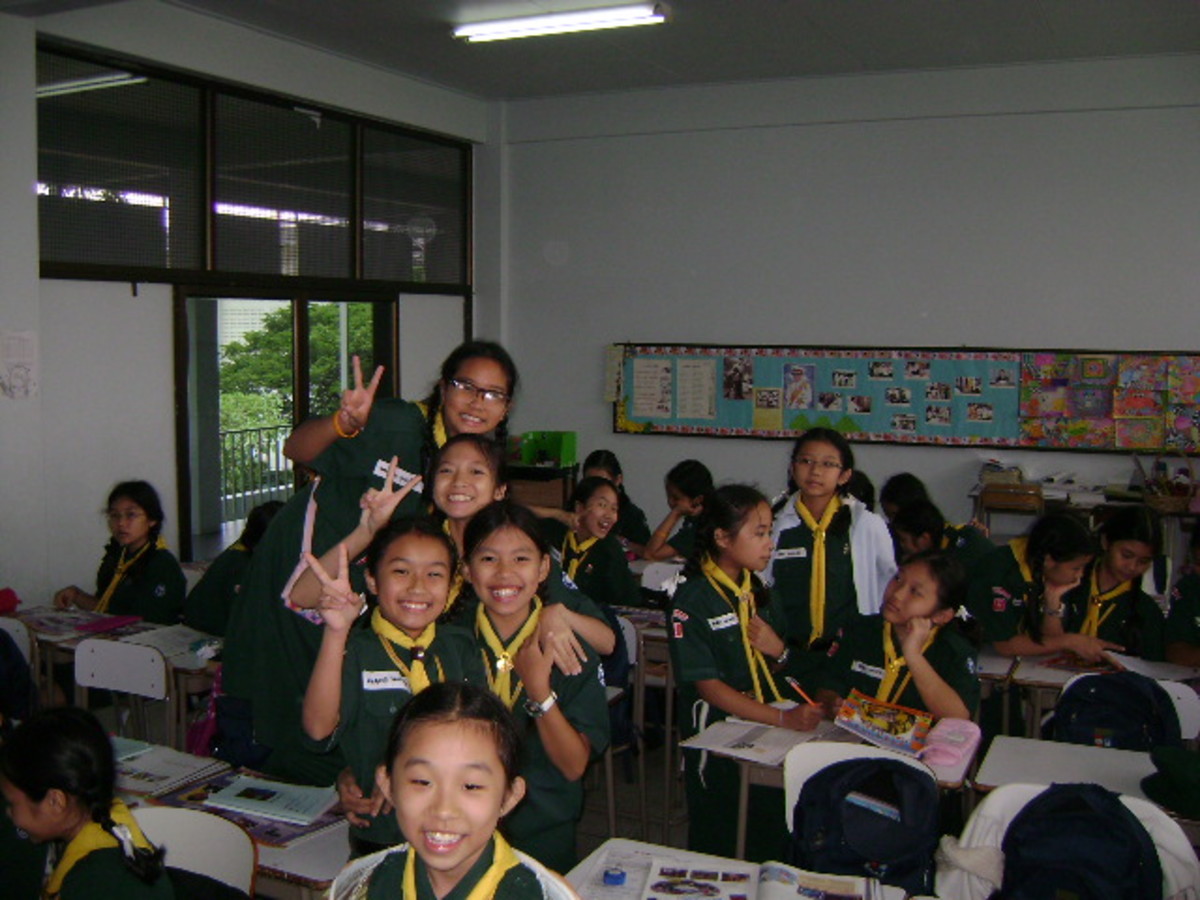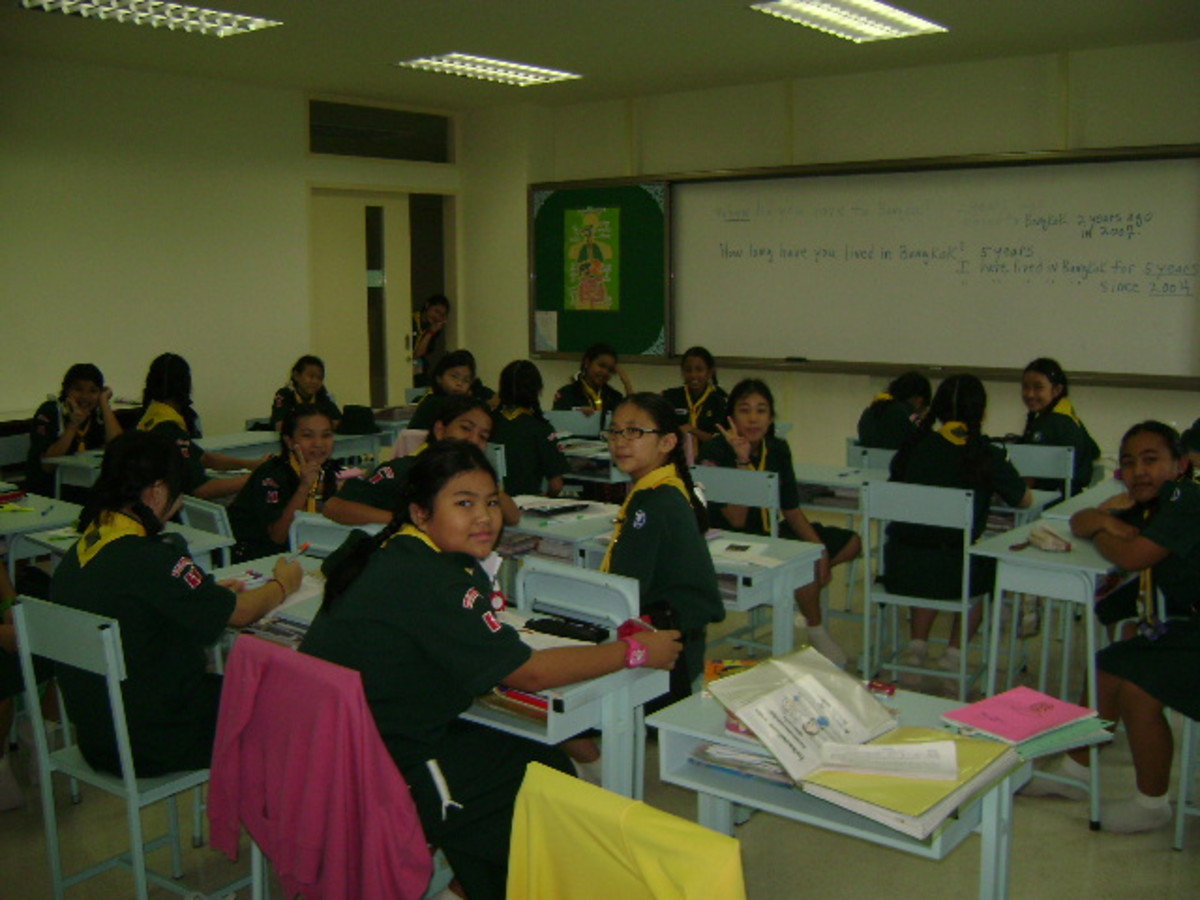How to Find a Job Teaching English in South Korea

What Kind of Job are You Looking For?
Before beginning your job search in South Korea, you should consider what kind of teaching context you are interested in. There are basically five types of jobs:
- hagwon (private academy)
- public school
- university
- international school
- business
The most common entry-level teaching job in South Korea is teaching children at hagwons. Private education is a huge industry here, and if you are looking for a job that starts tomorrow, this is the way to go. There are extreme differences between good hagwons and bad ones. You cannot ask too many questions and if at all possible, try to speak with current teachers. The average job entails teaching 30 classes a week to young children. There are hagwons which cater to adults, but they almost all require split shifts and some require Saturday and Sunday hours.
The market for public school jobs has peaked and schools are no longer budgeting for native-speaker teachers (NESTs) nearly as much as they were several years ago. Some schools are hiring one teacher instead of two, others are not renewing contracts with more experienced (read: expensive) teachers, and others are no longer using NESTs at all. There are many benefits to working for public schools compared to hagwons, including fewer classes and longer vacations. The pay may be lower than the going rate for hagwons, depending on the school district and your qualifications. NESTs are paired with a co-teacher who may or may not be an active part of the class and at most schools, teachers teach each class once or twice a week for 40-minute lessons.
University jobs are generally considered the holy grail of ESL jobs in South Korea, because of the low teaching hours and long vacations. Nine to twelve teaching hours a week and twenty or more weeks of paid vacation are not unheard of. Personally, I have left my university job (15 teaching hours a week and two 20-week semesters a year), because I prefer teaching children. Each age range has its own characteristics, which you should weigh up when deciding what kind of job you want to pursue.
There are also a number of international schools, most but not all of which are located in and around Seoul. These are "regular" teaching jobs, in that teachers must be certified in their home country and the available jobs are the same as those found at any school in the US or Canada. The pay and holidays also parallel North American standards, but deductions are far lower and since housing is provided, the pay goes a lot further. There are tiers of international school, both in terms of the standard of education provided and the percentage of international students. If you French-English bilingual, the French school in Seoul occasionally hires native-speaking English teachers, as well. There is a German school, but I have never seen it advertise for ESL teachers.
Finally, the smallest category of teaching positions is in-house at large companies. Samsung, for instance, has a training center in Yongin (near Seoul) which employs full-time English teachers, as well as Russian, Spanish, and a few other languages. These jobs pay very well, but the people I know who have worked for these companies worked very hard and had extremely long office hours.
These are the basic categories of jobs widely available for ESL teachers in South Korea, but within each category of job, there can be broad differences, so prospective teachers really cannot do too much research or ask too many questions before signing a contract.
Online Resources for Finding an ESL Job
- Dave's ESL Cafe
The most well-known ESL website. There are three job boards: Korea, China, and the rest of the world, so there are numerous new jobs daily. There are also forums, but the Korea forums tend to be full of trolls. - ESL Jobs, TEFL Jobs, TESOL Jobs at ESLemployment.com
Job postings are free here, so there are jobs not listed on Dave's.
Finding a Job-- Networking
I cannot stress enough the importance of networking and word of mouth for finding a good job in Korea. To avoid being inundated with resumes, many of the best schools rarely or never advertise openings. They simply ask their current employees for recommendations.
There are various ways to network, including joining professional teaching organizations, such as KOTESOL, which have chapters all over the country. There are also a number of non-teaching expat organizations which provide plenty of opportunities to meet other teachers with similar interests.
Finding a Job-- Recruiters
Another way schools avoid drowning in resumes is to use recruiters. In other words, they are paid by the schools. While there are many recruiters who do their best to find the best match of teacher and school, many, many more are just looking for anyone, so they can collect their finder's fee. Caveat emptor.
When working with a recruiter, keep in mind that they may have little idea about the actual working conditions or specifics of the jobs they are filling. Therefore, your questions may be answered vaguely or completely erroneously. If you do choose to go through a recruiter, try to speak to someone currently employed by the school before you sign a contract.
I will not recommend a specific recruiter, because individual experiences can vary, but a simple Google search will turn up a number of options. Many also advertise positions on job boards, such as Dave's ESL Cafe.








